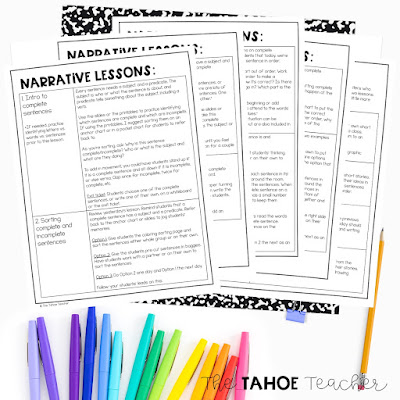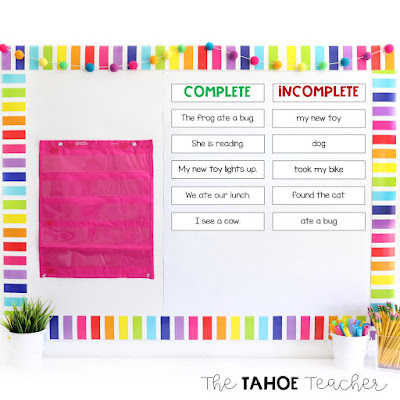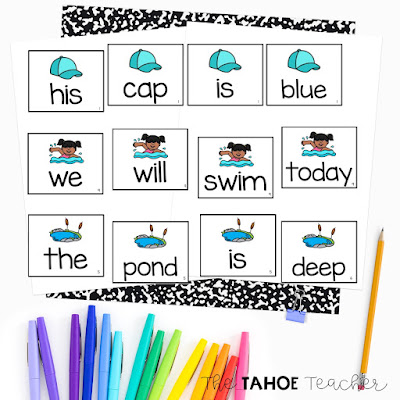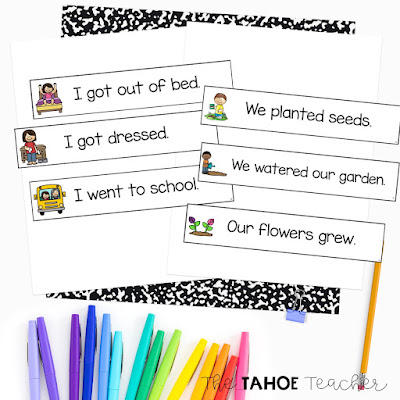The First Narrative Writing Unit for Beginning Writers
Hey, y'all! At the beginning of every school year, we start our first narrative writing unit. It's easy for the kids to relate to and find stories to write about. And with that first round of freshly written first grade writing I immediately see... giant, gaping, holes. Yes, they're little and they're learning. But that is exactly why we teach them! We teach them about complete sentences and sentence order and "is this making any sense at all?". A lot of times for new writers, the answer is a resounding "no." Welcome to Narrative Writing for Beginners.
So, the first thing I usually notice, assuming that the kids know some words and their letter formation is reasonable, is that they don't know how to write a complete sentence. Either we've got a few words on the page and they "read it" to me with all kinds of new words thrown in there that are not on the page, OR they've got the most impressive run-on sentence that any first grader has ever seen.
What to do, what to do...
Well, first we start with defining what a complete sentence is and identifying what it looks like in print. We spend a few days just on identification, then we work our way into turning those fragments into complete sentences. This is where the fun part begins. We've got our super cute slides to help us along, the kids have whiteboards and markers, and we work together to turn those fragments into complete sentences. But be warned, these can get a little silly. 😉
Once we understand what a complete sentence is, we take some scrambled sentences and...well, we unscramble them. We do this together as a whole group first, then we do a little partner practice and individual practice. The kids love these hands-on pieces and this gives you time to give students who need more support a little extra attention.
Next, we work on putting sentences in order in a way that makes sense. We talk about beginning, middle, and end in every story we read at the beginning of the year. That makes this part of the unit a little easier. Together, we order a set of sentences and talk about why they would go in that order. Then, students have practice time with partners or on their own.
Finally, it's time to write. Now remember, this is the first unit in this series. We haven't really dove in to capitalization, punctuation, "spicy words," or any of the other good stuff yet. This is simply about writing complete sentences and a story with a beginning, middle, and end. We'll get into the rest of the things in the next units.
We spend a day or so brainstorming, one on mapping out our stories, and then we put pencil to paper. It's not going to be a novel, but it's the first step into getting your students to write so that you don't want to pull your hair out.
This unit includes three weeks of lesson plans, teaching slides, options for modifications, partner and individual work, graphic organizers, and writing paper for final drafts. Lessons and slides are engaging and effective, and there are plenty of places to monitor students' progress along the way.
You can find this unit in my TPT store here. Remember, this is the first in a series of writing units, so be sure to follow me on TPT so you don't miss what's next!
Thanks for stopping by and I hope you found some valuable ideas for your own classroom. Have a wonderful week and I'll talk to you soon.
Stay cozy,













No comments
Post a Comment